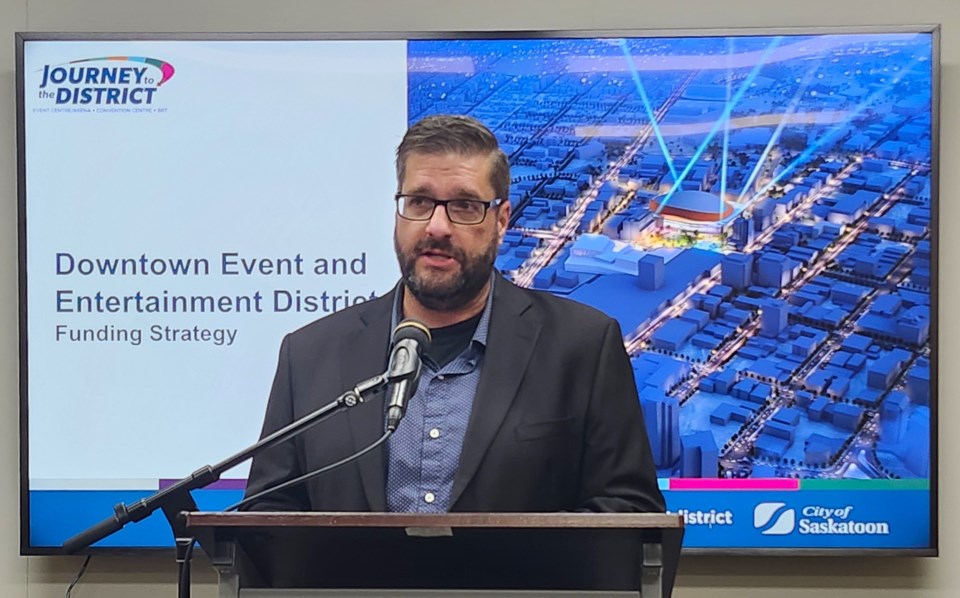SASKATOON — The City of Saskatoon has identified six other funding sources to help build its Downtown Event and Entertainment District after announcing a public-private partnership contribution almost two weeks ago.
Technical Services Director Dan Willems said the funding tools they identified would prevent increasing property taxes since no money from the said tax will fund the multi-million-dollar project to turn Saskatoon into an alternative events venue.
"Our vision for the [DEED] is [having] a safe and vibrant downtown that is a welcoming and inclusive place for all people to come together in a cooperative spirit," said Willems during a media briefing on Wednesday, Aug. 21, at City Hall.
"The administration was tasked with developing a funding strategy to construct the [DEED] without contribution from property taxes. We're confident that the tools within the funding strategy have been formulated to achieve this important goal."
He added that the DEED would support a more robust economy for Saskatoon, strengthen the city's diverse community, and attract people to live, work, and play downtown.
The city has arranged a public-private partnership with service-oriented and venue operations firm OGV360, securing one-time funding of $20 million and an estimated $150M from revenue-sharing contributions over the next 25 years.
The administration identified the funding tools as accommodation and amusement taxes, parkade revenues, tax incremental financing, and property realized and SaskTel Centre reserve contributions.
The accommodation tax is anticipated from a direct agreement with local hoteliers that would be applied to short-term hotels, hostels, motels, and online platform stays. The tax has been implemented in many Canadian provinces and municipalities.
However, the accommodation tax needs legislative changes to The Cities Act before it can be implemented. If the tax cannot be achieved through legislative means or an agreement with hoteliers, an alternative is creating a class or sub-class for hotels, hostels, and motels.
Next is the amusement tax, a fixed charge applied to event tickets, followed by many venues nationwide. SaskTel Centre and TCU Place charge fixed-rate facility fees on their event tickets.
Parkade revenues will come from at least 526 publicly accessible parking stalls on city-owned lands at 22nd Street and Idylwyld Drive. At the same time, incremental tax financing, widely used in Alberta, divides the property tax revenues on properties within a boundary or district.
Like the accommodation tax, the TIF needs legislative changes or an agreement with the Saskatchewan provincial Government.
Reserve contributions from property realized and SaskTel Centre use Bylaw No. 6774, or the Capital Reserve Bylaw 1993, to declare allocations from the property realized reserve for priority projects.
"It is important to remember this is not about deciding to proceed with construction. Rather, it is about taking the next step to pursue the financial opportunities to support the potential [DEED]," said Willems.




